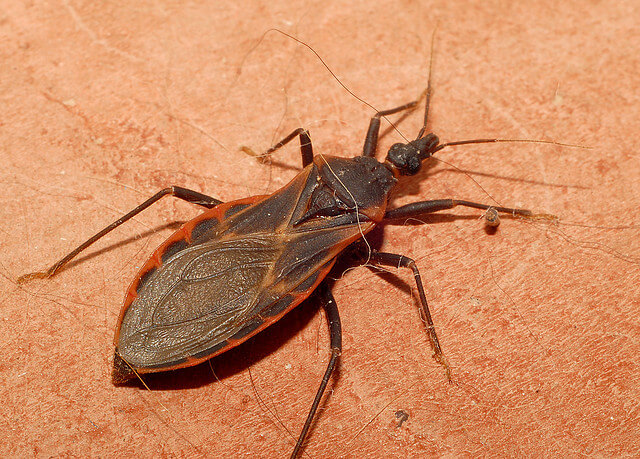Chagas disease more prevalent in Texas than initially thought, new study finds
New study finds that disease-carrying "kissing bugs," also known as "assassin bugs," are more prevalent in Texas than initially thought.
The study conducted by researchers from University of Texas at El Paso and published in the journal Acta Tropica suggests that Texans are at higher risk of catching the disease called Chagas disease.
Kissing bugs carry the parasite Trypanosoma cruzi (T. cruzi) and spread it to its victims through a bite. However, its transmission works differently from the bite of mosquito spreading malaria.
Kissing bugs bite their victims and in the process, they drop their feces — which contain the parasite — which could land on the bite area and start an infection.
According to Science Daily, one does not need to be bitten by the insect in order to contract the deadly disease. Once infection is present, it can be spread from human to human through blood transfusions, organ transplants, and in pregnancy.
Even food and beverages contaminated with kissing bug feces can also be the source of infection.
To study how widespread the insects are, the researchers set up traps at the Indio Mountains Research Station, which is a part of the university.
Researchers caught 39 kissing bugs, tested them, and found that 24 of the insects carry the parasite T. cruzi.
Rosa A. Maldonado, who headed the research, was surprised by the number of insects carrying the deadly parasite. "I was expecting to have some, but this is quite high," she said in the Science Daily report.
Chagas disease causes damage to the central nervous system and the heart. An estimated six to seven million people worldwide are infected and most of them are those in Latin America.
According to AllAboutChagasDisease.com, it's the fourth leading cause of death in Latin America.
Meanwhile, in the United States, the disease belongs to the list of neglected parasitic infections, as stated by the U.S. Centers for Disease Control and Prevention. The disease can be reversed if treatment is given immediately after infection.












